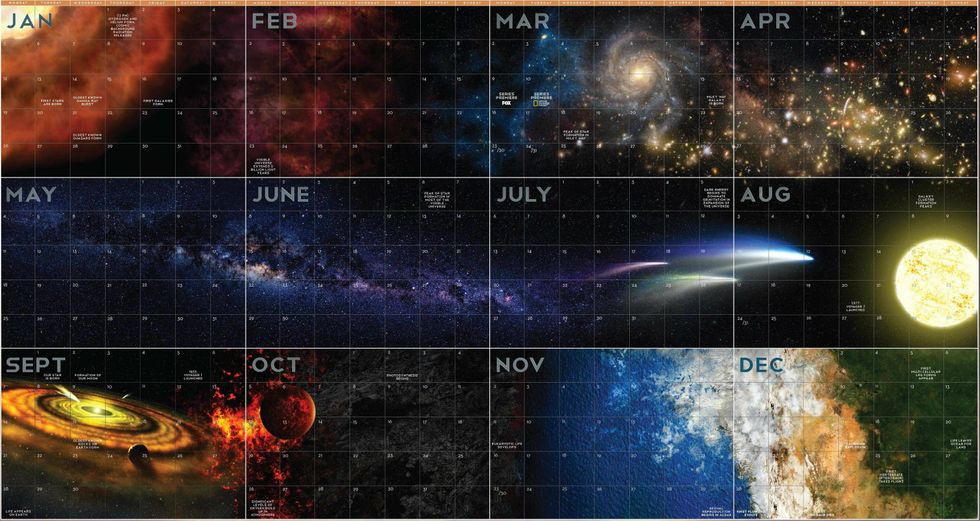Almost all of my friends have watched at least one episode of "Cosmos: A Spacetime Odyssey," and whenever the subject of the show or space or nature documentaries, in general, was brought up, they would rave about how interesting, beautiful, and easy to follow the show was. So finally, I decided to watch it. I am only three episodes in right now, but I have already learned so much. The way Neil Degrasse Tyson explains these complicated subjects such as The Big Bang, dark matter, or the continuum of space and time makes it seem a lot less complex than it is (not saying I understand it at all, the universe is intricate and vast and almost everything that Tyson says is way above my head. But the show is very user-friendly.) Here are some of the amazing things I have learned about the cosmos from the show Cosmos.
1. We are living stars
Tyson explains that stars get so hot that the nuclei of the atoms fuse together deep within them to make the oxygen we breathe, the carbon in our muscles, the calcium in our bones, the iron in our blood. "We are made of starstuff."
2. The cosmic year

If we condensed the creation of the cosmos into a calendar year starting on January first at 12:00 a.m. and ending on December thirty-first at 11:59 p.m. Every month lasts about a billion years, every day lasts about 40 million years. According to this calendar, the entirety of human life would only take up the final hour of the final day of the cosmic year.
3. The possibility of a multiverse
Our Milkyway Galaxy is only one of millions in the Virgo Supercluster. "At this scale, every tiny dot is it's own galaxy." But beyond the horizon of our observable universe, scientists believe that there are other parts of the universe that are so far away that there hasn't been enough time in the 13.8 billion-year history of the universe for their light to have reached ours.
4. Voyager I and her soundtrack
Voyager 1 has traveled farther in our universe than any other spacecraft (12 billion miles from Earth). She carries with her a golden record of earth sounds such as a human heartbeat, whale "songs", and the music of Beethoven. She also says words of greeting in 55 different languages.
5. All humans have access to the cosmos
Tyson says “...this adventure is made possible by generations of searchers strictly adherent to a simple set of rules. Test ideas by experiments and observations. Build on those ideas that pass the test. Reject the ones that fail. Follow the evidence wherever it leads, and question everything. Accept these terms, and the cosmos is yours.”
** If you love Cosmos, you will also love Neil DeGrasse Tyson's new book, "Astrophysics for People in A Hurry."























